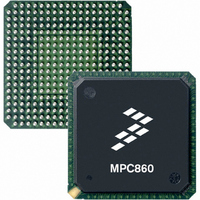MC68360VR25VL Freescale Semiconductor, MC68360VR25VL Datasheet - Page 769

MC68360VR25VL
Manufacturer Part Number
MC68360VR25VL
Description
IC MPU QUICC 25MHZ 357-PBGA
Manufacturer
Freescale Semiconductor
Datasheets
1.MC68EN360VR25L.pdf
(14 pages)
2.MC68EN360VR25L.pdf
(2 pages)
3.MC68360AI25L.pdf
(962 pages)
Specifications of MC68360VR25VL
Processor Type
M683xx 32-Bit
Speed
25MHz
Voltage
3.3V
Mounting Type
Surface Mount
Package / Case
357-PBGA
Family Name
M68000
Device Core
ColdFire
Device Core Size
32b
Frequency (max)
25MHz
Instruction Set Architecture
RISC
Operating Supply Voltage (max)
3.3V
Operating Supply Voltage (min)
2.7V
Operating Temp Range
0C to 70C
Operating Temperature Classification
Commercial
Mounting
Surface Mount
Pin Count
357
Package Type
BGA
Lead Free Status / RoHS Status
Lead free / RoHS Compliant
Features
-
Lead Free Status / Rohs Status
Compliant
Available stocks
Company
Part Number
Manufacturer
Quantity
Price
Company:
Part Number:
MC68360VR25VL
Manufacturer:
Exar
Quantity:
160
Company:
Part Number:
MC68360VR25VL
Manufacturer:
Freescale Semiconductor
Quantity:
10 000
Company:
Part Number:
MC68360VR25VLR2
Manufacturer:
Freescale Semiconductor
Quantity:
10 000
- Current page: 769 of 962
- Download datasheet (4Mb)
Applications
9.4.3.1 BASIC INITIALIZATION. The following paragraphs describe basic software initial-
ization.
The module base address register (MBAR) should be set as desired. However, the QUICC
8-Kbyte block of address space should not overlap any memory array.
The module base address register enable (MBARE) should not be accessed.
In the module configuration register (MCR), ASTM and BSTM should be set. The user
should program BCLROID2–BCLROID0 to $3 and program the SDMA, IDMA1, and IDMA2
arbitration IDs in the SDMA configuration register and IDMA channel configuration registers
to 4, 2, and 0, respectively, to allow the SDMA and DRAM refresh to preempt IDMA trans-
fers. SHEN1–SHEN0 should be left cleared. SUPV should be cleared. BCLRIID2–
BCLRIID0 are not used and can be programmed to $0. IARB3–IARB0 can be left pro-
grammed to $F to allow SIM interrupts to have priority over CPM interrupts that occur at the
same level.
In the system protection control register (SYPCR), DBFE should be cleared. BME should be
set. If the software watchdog is not used, the SWE bit should be cleared. If the software
watchdog is used, the SWRI bit should be left set to cause a system reset, rather than an
interrupt.
The periodic interrupt control register (PICR) may be set as desired.
The port E pin assignment register (PEPAR) should be set to $31C0, which configures three
IOUTx lines to go out on some of the IRQx pins, the RAS1DD pin, and the use of the WE
lines instead of the A31–A28 lines. It also configures the AMUX pin (assuming DRAM is
used in the system; otherwise, the OE function should be programmed), four CASx lines,
CS7, and AVECO.
9.4.3.2 CONFIGURING THE MEMORY CONTROLLER. The
describe configuring the memory controller registers.
The global memory register (GMR) should be configured as follows:
9-49
The RFCNT bits may be set as desired. At 25 MHz, an RFCNT value of 24 (decimal) gives
one refresh every 15.6 s.
RFEN should be set.
RCYC depends on the DRAM speed. At 25 MHz (an 80-ns DRAM SIMM), RCYC should
be 00.
PGS2–PGS0 is not relevant since page mode and internal address multiplexing is not
used.
DPS should be set to 00.
WBT40 depends on timing; it is usually cleared for 80-ns DRAM SIMMs.
WBTQ depends on timing; it is usually set for 80-ns DRAM SIMMs.
EMWS is not used in this design since there is only one QUICC. It should be cleared.
Freescale Semiconductor, Inc.
For More Information On This Product,
MC68360 USER’S MANUAL
Go to: www.freescale.com
following
paragraphs
Related parts for MC68360VR25VL
Image
Part Number
Description
Manufacturer
Datasheet
Request
R
Part Number:
Description:
Manufacturer:
Freescale Semiconductor, Inc
Datasheet:

Part Number:
Description:
MC68360 MC68360 Multiple Ethernet Channels on the QUICC
Manufacturer:
Motorola / Freescale Semiconductor

Part Number:
Description:
MC68360 Implementing an 8 bit Eprom for an MC68EC040-MC68360 System
Manufacturer:
Motorola / Freescale Semiconductor

Part Number:
Description:
MC68360 Interfacing the MC68060 to the MC68360
Manufacturer:
Motorola / Freescale Semiconductor

Part Number:
Description:
MC68360 MC68360 RAM Microcode Package Option Overview
Manufacturer:
Motorola / Freescale Semiconductor

Part Number:
Description:
MC68360 MC68360 CPM-CPU Interaction
Manufacturer:
Motorola / Freescale Semiconductor

Part Number:
Description:
MC68360 Interfacing SDRAM to the MC68360 QUICC Device
Manufacturer:
Motorola / Freescale Semiconductor

Part Number:
Description:
MC68360 Interfacing the QUICC to a MCM516400 (4Mx4 10-12 column-row) DRAM
Manufacturer:
Motorola / Freescale Semiconductor

Part Number:
Description:
MC68360 Interfacing the 68360 (QUICC) to T1-E1 Systems
Manufacturer:
Motorola / Freescale Semiconductor

Part Number:
Description:
MC68360 Multiple QUICC Design Concept
Manufacturer:
Motorola / Freescale Semiconductor
Part Number:
Description:
Manufacturer:
Freescale Semiconductor, Inc
Datasheet:
Part Number:
Description:
Manufacturer:
Freescale Semiconductor, Inc
Datasheet:
Part Number:
Description:
Manufacturer:
Freescale Semiconductor, Inc
Datasheet:
Part Number:
Description:
Manufacturer:
Freescale Semiconductor, Inc
Datasheet:
Part Number:
Description:
Manufacturer:
Freescale Semiconductor, Inc
Datasheet:











